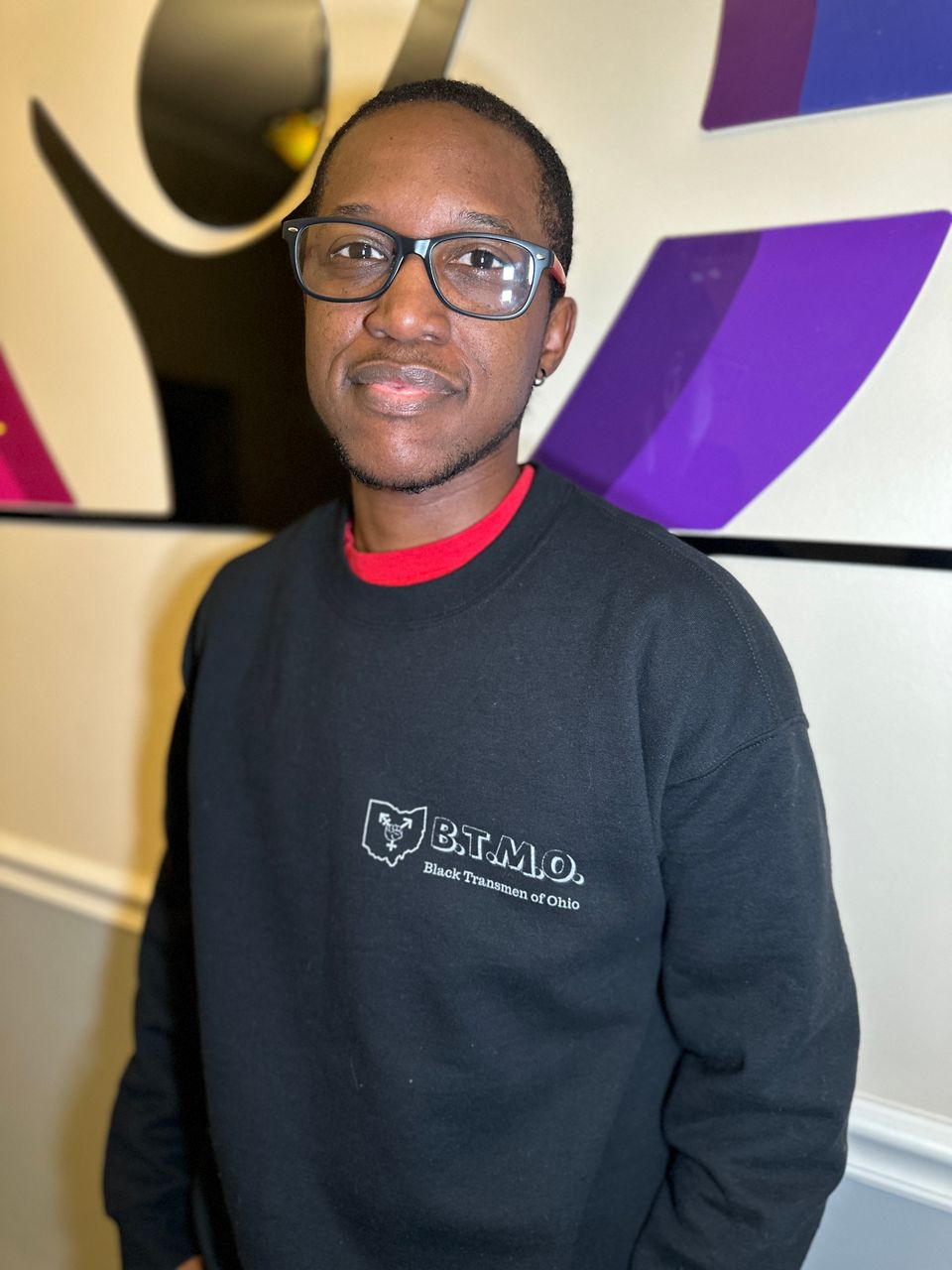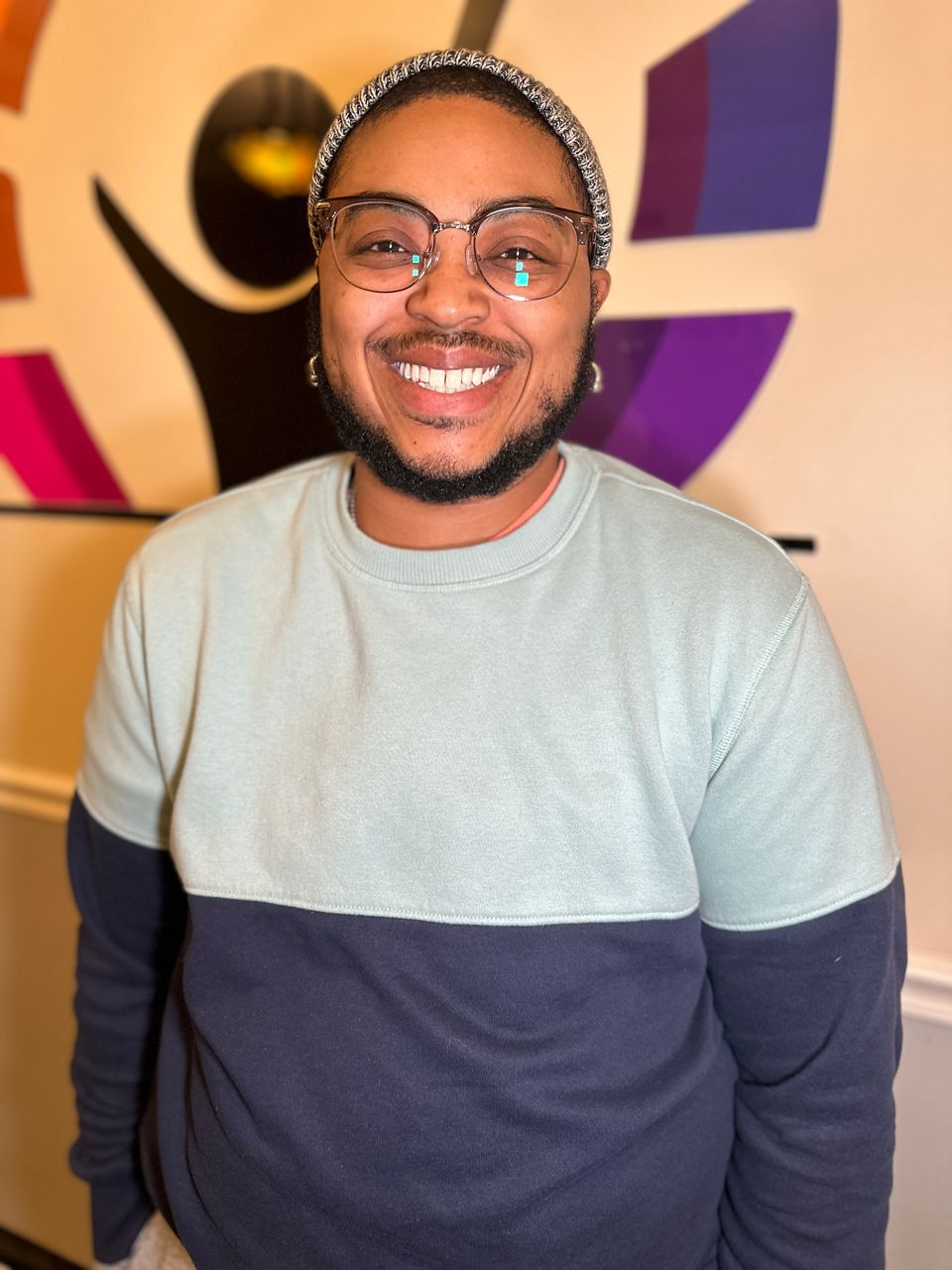OHIO — Two Thursdays a month, you’ll find Khris Goins leading a support group. Goins is a transgender man and has been using he/him pronouns since 2018.
The process of transitioning isn’t easy, he said. It can be intimidating, isolating and scary. In 2020, when he started his medical transition, he joined a transgender support group at an LGBTQ organization in Columbus, but said one thing was missing: the people in the group still didn’t look like him.
“There are more Caucasian trans women in that group,” Goins said. “So I wasn't getting that support, being a Black trans man.”
Goins said he knew there had to be others like him in Ohio, so with the help of another transgender man, Eric Coleman, he created their own support group, T-Man talk, specifically for transmen and transmasculine people of color.

Shortly after, Goins expanded the support and launched the nonprofit Black Transmen of Ohio, also known as BTMO. It’s a space for others who’ve gone through similar experiences physically, mentally and culturally.
“I feel like everybody needs support. Right? Everybody needs somebody like them that they could talk to and relate to,” Goins said. “We want you to be able to feel safe, and just have that friendship because human interaction is important, especially with those who look like you.”
Goins aims to offer support to transgender and trans-masculine people of color all across Ohio. He provides resources to gender-affirming health services, educational programs, gives away after-surgery care kits, and hosts many fun events like holiday parties and random nights out bowling.
Eric Coleman, who is now a board member of BTMO, said the group has helped him be more confident in who he is.
“I've been able to acquire friends that really helped me express myself as a man,” Coleman said. “I was socially conditioned and perceived as a woman. And I'm 42, that's 37 years of my life in that space, being able to move out of that and into expressing myself as a man, making friends, doing things that provide euphoria for my self-expression. It was so important, and it really helped me center myself and who I am as a person.”

Goins and Coleman said in America it’s already hard to be Black and hard to be LGBTQ. Put the two together and it adds another layer of difficulty.
“It can feel very invalidating for the humanity that, you know, you carry when you're expressing yourself in your truth," Coleman said. "And people are just like, 'Nah, that's not it. What do you mean? I'm pretty sure I know myself.' And I think it's our birth-given right to express that freely and openly. And my humaneness looks different than yours. It's not gonna look the same. It's not supposed to.”
With anti-transgender legislation circulating around statehouses in the U.S., and in Ohio, Goins said it’s even harder for transgender people to live in their truth.
“But just like anything else, to be honest, everything is hard," Goins said. "It is how you're going to get through it. If nobody's gonna take care of us, we got to take care of us.”
Since the launch of Black Transmen of Ohio in late 2020, Goins has connected more than 80 trans masculine or masculine-presenting non-binary people with resources like gender-affirming care, free hormone replacement therapy supplies, hair clippers, hygiene essentials, therapy and much more.
He wants BTMO to be a supportive, inclusive, empowering home for trans men of color. An extended family to many who have lost theirs for being who they are and a safe space that reminds them they’re seen, heard, cared for and, most of all, human.
“We're used to surviving," Goins said. "Now let's get to a place where we're thriving."
Goins is currently looking to expand his reach. The T-man talk support group is virtual, but he plans to host more in-person fun events in cities outside of Columbus in the near future.
For more information about BTMO, click here.



